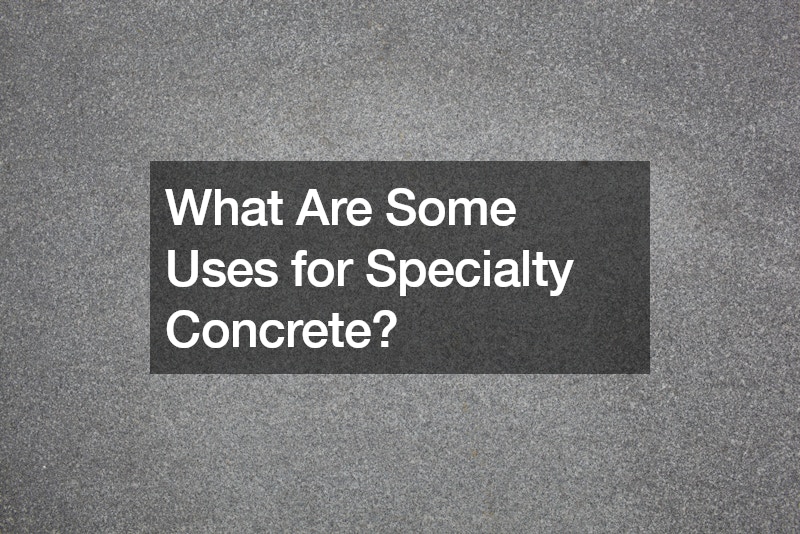
Specialty concrete refers to various types of concrete that are formulated or modified to achieve specific performance characteristics beyond those of standard concrete. These advanced materials address unique construction challenges and meet the needs of specialized applications. Here are some prominent uses for specialty concrete:
High-Performance Concrete (HPC)
High-Performance Concrete (HPC) is designed to provide superior strength, durability, and resistance to environmental stressors.
It is used in constructing high-rise buildings, bridges, and other infrastructure requiring high compressive strength and long service life. HPC is particularly valuable in areas subjected to heavy traffic, harsh weather conditions, or chemical exposure, such as marine environments and industrial facilities.
Lightweight Concrete
Lightweight concrete is made with lightweight aggregates like expanded clay, shale, or perlite, reducing its density and weight. This type of concrete is ideal for applications where reducing the dead load of the structure is crucial, such as in multi-story buildings, bridge decks, and roof slabs. It provides excellent thermal insulation properties, making it suitable for energy-efficient building designs.
Self-Consolidating Concrete (SCC)
Self-Consolidating Concrete (SCC) is highly flowable and can spread into place and fill formwork without mechanical vibration. SCC is used in complex formworks, densely reinforced structures, and areas difficult to access with traditional vibration techniques. Its ease of placement and ability to produce smooth finishes make it a preferred choice for architectural concrete, precast elements, and repair works.
Fiber-Reinforced Concrete (FRC)
Fiber-Reinforced Concrete (FRC) incorporates fibrous materials, such as steel, glass, synthetic, or natural fibers, to enhance the concrete’s tensile strength, crack resistance, and impact resistance. FRC is commonly used in applications requiring high durability and toughness, such as industrial floors, pavements, tunnels, and airport runways. The fibers help control cracking and improve the concrete’s overall performance under load.
Pervious Concrete
Pervious concrete, also known as porous or permeable concrete, is designed to allow water to pass through it, reducing runoff and promoting groundwater recharge. It is used in environmentally sustainable applications like parking lots, driveways, sidewalks, and stormwater management systems. Pervious concrete helps mitigate flooding, reduce heat island effects, and improve water quality by filtering pollutants.
High-Strength Concrete
High-Strength Concrete is specifically designed to achieve significantly higher compressive strength than ordinary concrete. It is often used in constructing skyscrapers, bridges, and other structures that require exceptional load-bearing capacity. This type of concrete allows for the construction of more slender and aesthetically pleasing structural elements without compromising safety or performance.
Shotcrete
Shotcrete, or sprayed concrete, is pneumatically projected onto surfaces at high velocity. It is used for applications requiring rapid placement and high bond strength, such as tunnel linings, slope stabilization, swimming pools, and repair works. Shotcrete can be applied to vertical and overhead surfaces, making it versatile for complex geometries and challenging construction environments.
Decorative Concrete
Decorative concrete is used for aesthetic purposes in residential, commercial, and public spaces. Techniques such as stamping, staining, and polishing can create various textures, colors, and patterns. Decorative concrete is popular for driveways, patios, walkways, interior floors, and countertops, offering a durable and customizable alternative to traditional materials.
